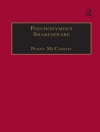'I'm going to find out – which of us is right, society or me.'
Henrik Ibsen's three great 'problem plays', A Doll's House, Ghosts and Hedda Gabler, challenged the conventions of nineteenth-century society and sparked a revolution in European theatre. Their female protagonists, Nora Helmer, Helene Alving and Hedda Gabler, continue to exert their power over modern audiences.
This volume brings together all three plays in sensitive and playable translations from the original Norwegian, along with a full introduction to Ibsen, his times and his work.
The Drama Classic Collections bring together the most popular plays from a single author or a particular period. They offer students, actors and theatregoers a series of uncluttered, accessible editions, accompanied by comprehensive introductions. Where the originals are in English, there is a glossary of unfamiliar words and phrases. Where the originals are in a foreign language, the translations aim to be both actable and accurate – and are made by translators whose work is regularly staged in the professional theatre.
Over de auteur
Stephen Mulrine (1937–2020) was a Glasgow-born poet and playwright who wrote extensively for radio and television, and published many translations, including English translations of plays in Russian by Chekhov, Gogol and Gorky, as well as translations of plays by Ibsen, Molière, Pirandello, Strindberg and others.












